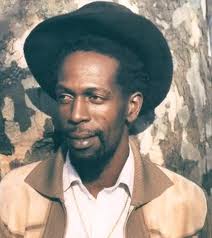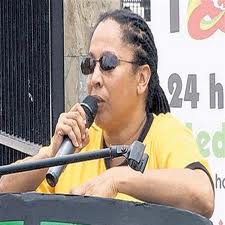
Barbados’ suspension of reggae and dancehall seen as good example
By Curtis Campbell—-,
The playing of reggae and dancehall music has been suspended in Barbados. The suspension began on June 1 and will end in the first week of August to facilitate Crop Over.
Those that control the policies of the Barbados music industry are hoping that Bajans will be consuming more of their culture from the media during that period.
The Gleaner contacted members of Jamaica’s music industry to get their opinion on the ban and, interestingly, the move has been applauded.
According to promoter/artiste manager Heavy D, Jamaica needs to pay more attention to its genres instead of focusing its attention on foreign music.
“I see Barbados lock off reggae and dancehall. I called to promote a song and they told me reggae and dancehall will not be played during this season. Suh why Jamaica can’t duh dat? Wi love to fight against our own t’ings too much. If Barbados government can get involved and ban outside music for three months, why we can’t even do it for one month straight and showcase musicians, reggae and dancehall?” Heavy D said.
Ruddy Isaacs, brother and former manager of late reggae icon, Gregory Isaacs, shares a similar view. He believes the Jamaican government should be more involved in regulating the amount of foreign music played on local radio.
However, artistes should also defend their work.
“I support Barbados and this move to play neither reggae nor dancehall. It’s now time for us to do the same thing in Reggae Month and on Reggae Day. I think the artistes need to start standing up for themselves because our local radio not playing reggae enough to make an impact. The only time most of these reggae artistes have mouth is when they are speaking out against homosexuality. Barbados is looking out for their culture because they can’t afford to allow dancehall and reggae to upstage them during their festive season,” he said.

Isaacs also blasted the Jamaican government, which he says is only focused on turning off entertainment events instead of contributing to their preservation and development.
“It’s up to us to protect our culture; the government should take a page from Barbados’ book. They keep talking about Brand Jamaica. But what are they doing except walk and lock down dance at midnight? Right now Jamaica pays more royalties to foreign music than it does local music. A things like dat dem fi sort out,” Isaacs said.
In the meantime, Bajan disc jockey ‘DJ Indian’ says the suspension of reggae and dancehall music is not intended to be disrespectful to Jamaican music.
“This policy has been around for years. We are paying attention to our own local music during Crop Over. It brings in tourists and builds the carnival feeling. Already we see where it is working, because it gets people into the carnival mood, so right now it’s 100 per cent soca. I would not keep a reggae show in Barbados during this season, because it wouldn’t work. We might feature Aidonia or RDX, but aside from that, it’s just soca. It’s nothing to be taken personally by Jamaicans, but every country has their rules. Reggae rules our airwaves for the rest of the year,” the 98.7 FM Bajan DJ said.
Andrea Davis, the organiser of International Reggae Day, observed annually on the first of July, also supported the move by the Bajans.
She pointed out that the media in other Caribbean islands have recognised the need to protect their culture, especially during the climax of their respective festive seasons.

She pointed out that the Government of Jamaica and the Broadcasting Commission share the responsibility of advocating on behalf of Jamaica’s creativity and entrepreneurs.
According to Davis, whether through strategic alliances or compulsory means, their role is to ensure that Jamaican music does not become lost in globalisation, technological and/or cultural revolutions.
media appeal
Davis is, therefore, encouraging the Jamaican media to make an effort to endorse Jamaican music on International Reggae Day.
“International Reggae Day, July 1, invites all media and all Jamaicans to wear their reggae colours and do their part to protect, preserve, promote, and celebrate the best of Jamaica’s music and its impact on the world with your favourite media house,” said Davis.
“I do believe that Jamaican media should embrace the opportunity presented by International Reggae Day and Reggae Month to saturate the ‘ear-space’ with airplay worthy music from all the sounds of Jamaica — ska, rocksteady, reggae, dancehall, nyabinghi, kumina, mento, and our own interpretations of gospel, jazz and rock,” she said.
Crop Over is a traditional festival which began in Barbados, having had its early beginnings on the sugar cane plantations during the colonial period. The festival was originally a celebration signalling the end of the yearly sugar cane harvest. However, it has since evolved into Barbados’ biggest national festival, similar to carnivals in Trinidad and Brazil.
Crop Over begins in June and runs until the first Monday in August. For the duration of the Crop Over season, soca/calypso music is usually the dominating genre.



You must log in to post a comment.